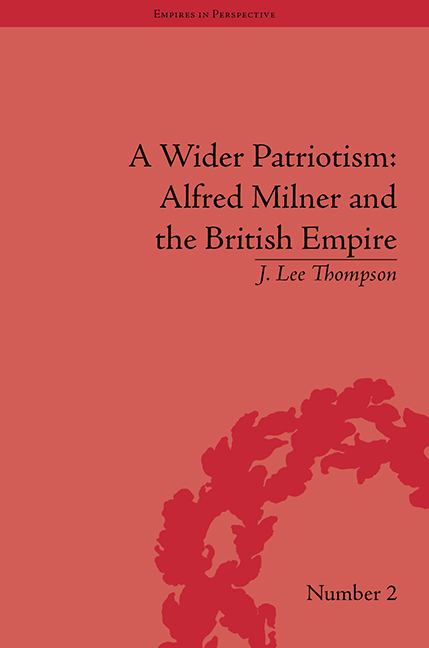Book contents
- Frontmatter
- CONTENTS
- Preface
- Acknowledgments
- Part I A Question about Which I Have Never Been Able to See the Other Side
- Part II Civilian Soldier of the Empire: South Africa
- 4 Building Bridgeheads to War
- 5 Milner and the Imperial Ladies
- 6 The Most Important Question: Race in South Africa
- 7 A Kindergarten to Govern the Country: South African Reconstruction
- Part III Constructive Imperialism
- Part IV Imperialism on the Anvil
- Notes
- Works Cited
- Index
4 - Building Bridgeheads to War
from Part II - Civilian Soldier of the Empire: South Africa
- Frontmatter
- CONTENTS
- Preface
- Acknowledgments
- Part I A Question about Which I Have Never Been Able to See the Other Side
- Part II Civilian Soldier of the Empire: South Africa
- 4 Building Bridgeheads to War
- 5 Milner and the Imperial Ladies
- 6 The Most Important Question: Race in South Africa
- 7 A Kindergarten to Govern the Country: South African Reconstruction
- Part III Constructive Imperialism
- Part IV Imperialism on the Anvil
- Notes
- Works Cited
- Index
Summary
To support his intended policy in South Africa, Milner counted on a network of press, political and social connections without which he could never have succeeded. Among these social links was the supremely well-connected Reginald Brett who returned with him to London from Windsor on 18 February 1897, the day Milner kissed hands with Victoria to mark his appointment as High Commissioner. The future Lord Esher commented to W. T. Stead that Milner had ‘a heavy job; and has to start de novo’. In his opinion the South African Committee investigating the Jameson Raid would ‘leave few of the old gang on their legs’. In his new journal, the Review of Reviews, Stead lauded Milner as an ‘Imperialist of the purest water’ who could be relied upon to do ‘all that can be done to make South Africa, from Table Mountain to Tanganyika, as loyally British as Kent or Middlesex’. But, Stead went on, Milner knew ‘far too well the hollowness of an Imperial unity compulsorily thrust upon an unwilling population. He goes to South Africa to supply patience, prudence, and conciliation; to restore confidence, and to prevent war.’
Milner was careful to curry the favour of his many friends in Fleet Street for the new endeavour. For example, he wrote to Sidney Low at the St James's Gazette that
If I can ‘do anything’, as you say I was reported to be able to do, now is the time of trial. Whatever I have attempted hitherto it has been child's play compared with this job. – Preserve your sympathy with me, and, if occasion offers, back me up. I may seem some times to be doing odd things – to those who are not on the spot to see the whole game ‘ and I shall have no time to explain. At such times it will be a relief to feel that there are people in England who believe in one and will not condemn on the first appearance or imperfect information.
- Type
- Chapter
- Information
- A Wider PatriotismAlfred Milner and the British Empire, pp. 37 - 54Publisher: Pickering & ChattoFirst published in: 2014



